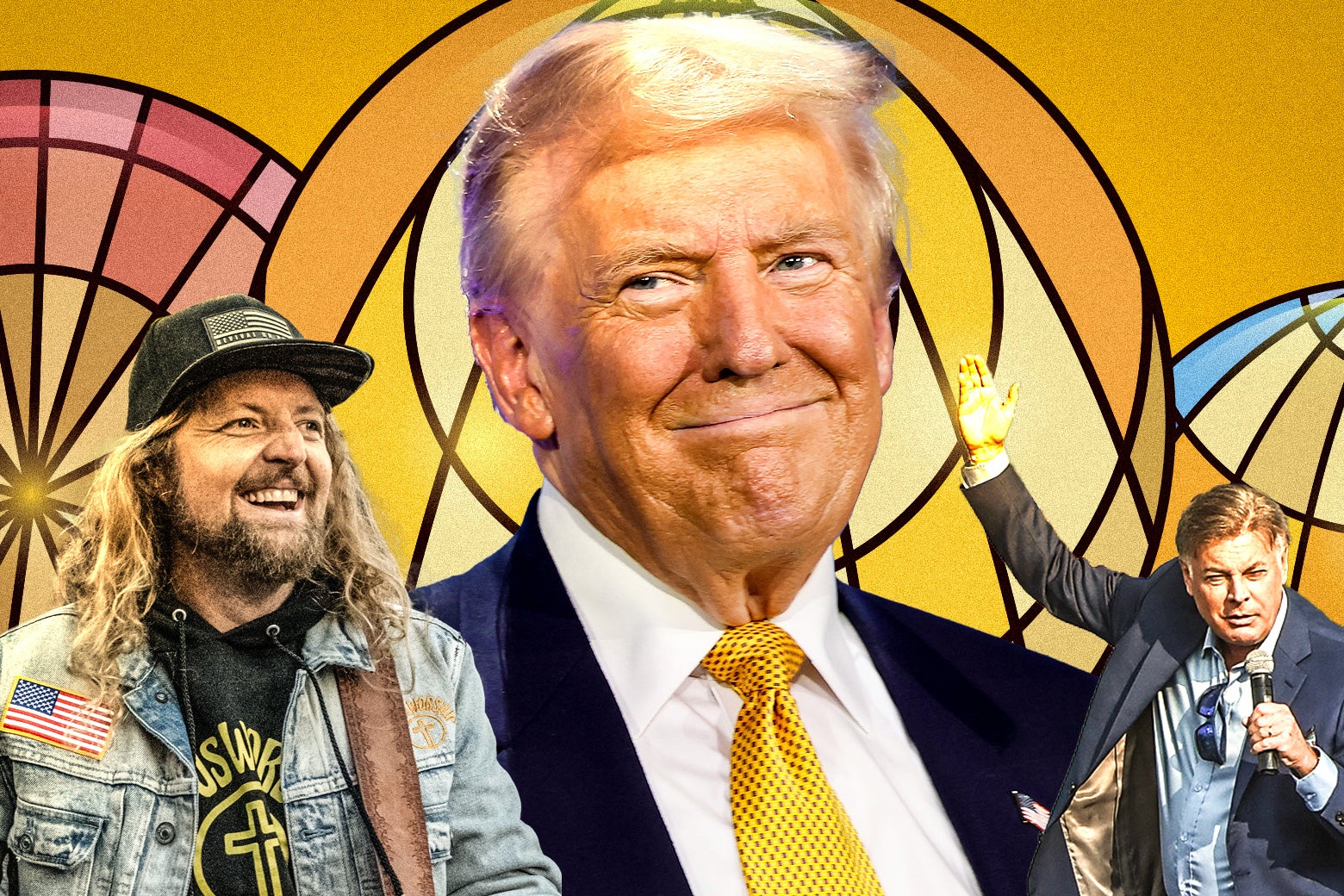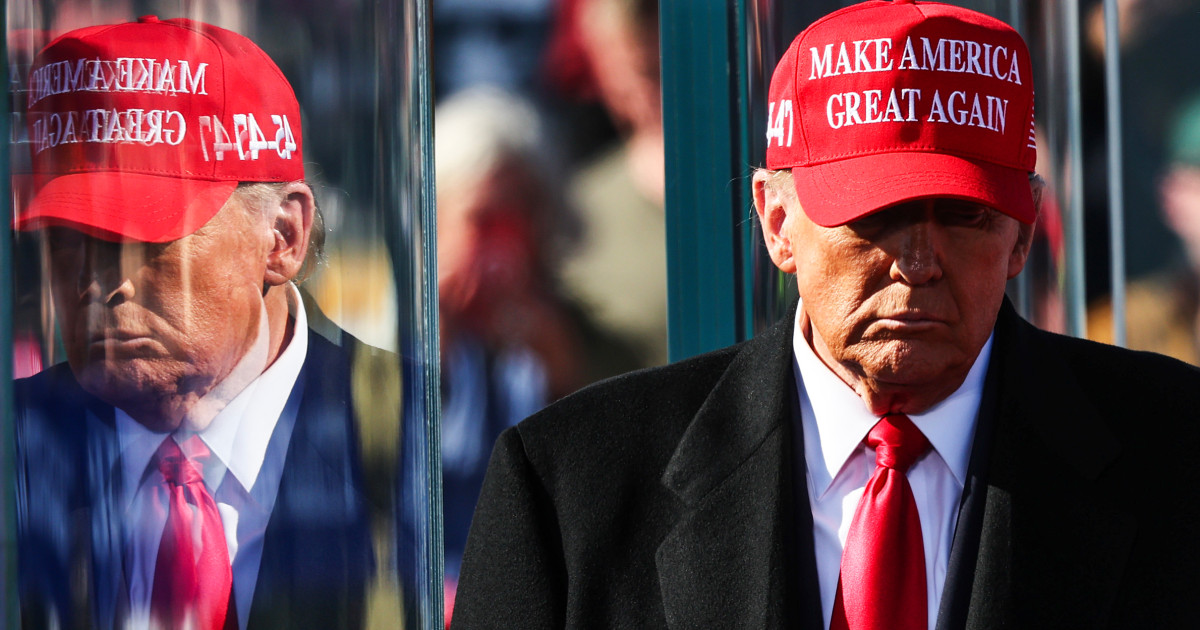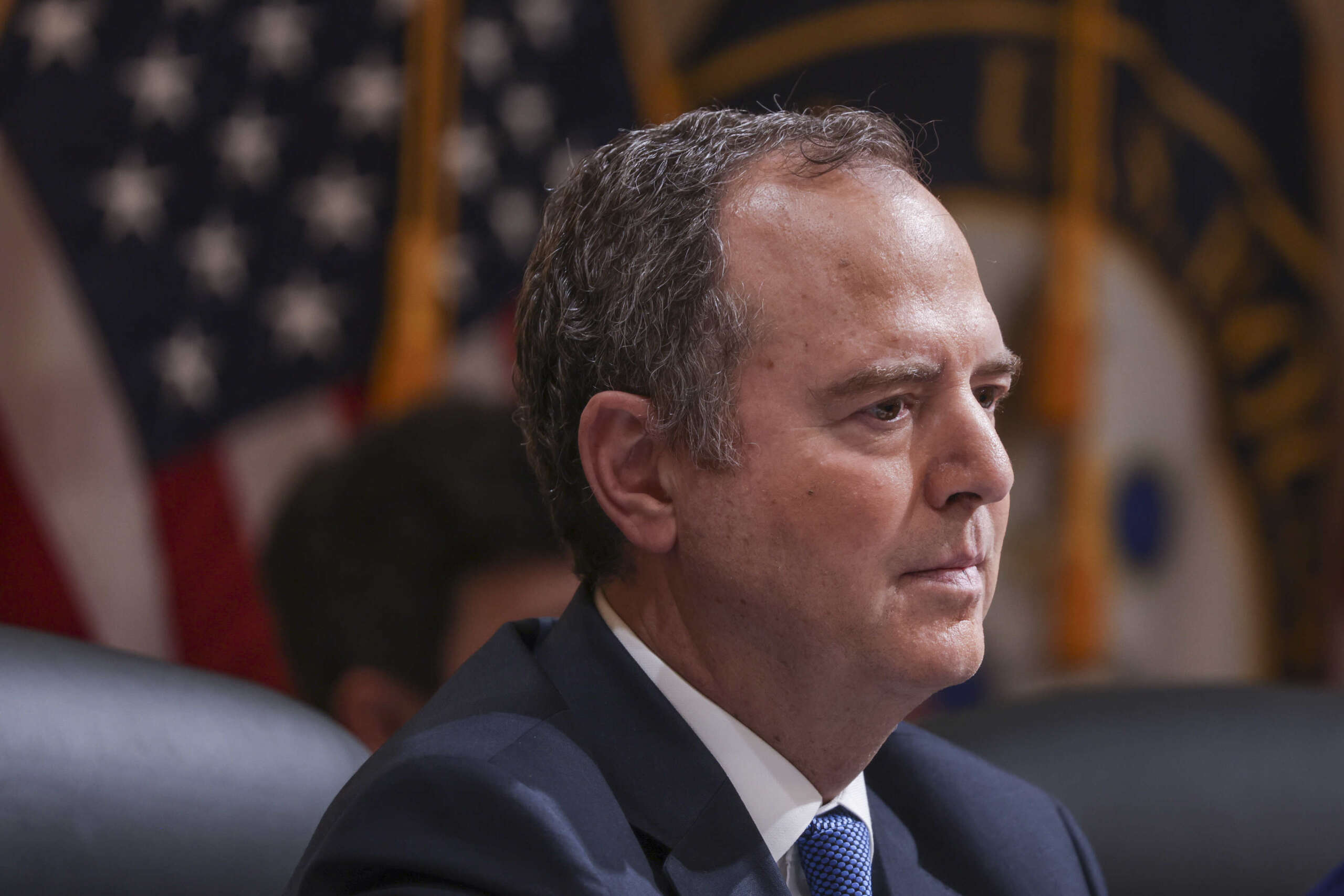In 2020 it seemed that a message from God had gotten garbled. That is, at least, if you were listening to some of the Christian MAGA figures who foretold Trump’s sweeping victory that year, claiming that they had received divine messages from God about it.
Far-right evangelical Christian leaders, mostly of independent charismatic churches or who have online followings invested in Trumpism, had declared with celestial clarity that Trump would win in 2020. Anything that stood in his way would be counter to God’s plans.
When he lost, these same Christians were left facing two possibilities: Either they had not worked or prayed hard enough to fulfill God’s will, or Trump had fulfilled the prophecies only in a technical sense, by winning the election, but was being robbed of the office. Karrie Gaspard-Hogewood, a sociologist at Tulane University who studies neo-charismatic Christianity, characterizes this thinking as “God can’t be wrong, so it must be some kind of human error or nefariousness or cheating.”
This is why there was such a big evangelical presence at the “Stop the Steal” rallies. This is also why charismatic Christians gathered in huge numbers over the past year for revivals aimed at winning the swing states. At these gatherings, Christians who believe they can use faith to summon miracles and access supernatural gifts such as healing spoke in tongues while calling for God’s angelic forces to combat the evil propping up Trump’s enemies. In their theology, evil spirits or demons worked through Democrats and FBI agents and journalists and even gender-affirming schoolteachers—literally possessing them—to gain territory for the devil in the battle for the soul of the country. This particular politically charged theology is growing rapidly across the country, taking over independent Christian churches and spreading a lot of talk of demons in politics. (See: Tucker Carlson’s latest foray into the supernatural.)
But now, with Trump not just winning the presidential election but dominating it, the original shame and confusion of the 2020 Trump prophecies have been wiped away.
Dutch Sheets, an influential self-described prophet and apostle, said in his daily worship broadcast last week that he realized that God had a plan. He quoted the right-wing influencer known as DC Draino, who pointed out that Trump would have been stymied by Democrats in Congress had he won in 2020. “It had to happen this way,” Sheets said. “We don’t always know God’s plans. He reserves the right not to tell us in advance, but we trust him.”
He recalled asking God to overturn the stolen election back in 2020. “We were disappointed it didn’t happen then,” Sheets said. “Several prophetic voices told me afterward, however, that every prayer would be answered. Just not when we assumed. God knows what he’s doing.”
As the evangelist Sean Feucht, a singer who led massive COVID-era worship events across the country, jokingly demanded: The prophets who apologized for getting things wrong in 2020 should apologize for apologizing. The promises those evangelical leaders made did come true—just on a different timetable.
“They are seeing this as a fulfillment of their prophecies, as vindication of their theology,” said Matthew Taylor, a scholar at the Institute for Islamic, Christian, and Jewish Studies, who has written a book about this religious movement and the Capitol riot.
But evangelicals steeped in Trumpism now face a new question: Where next? Until this point, the MAGA Christian movement has thrown vast amounts of energy into not just electing Trump but planning a challenge to the election, assuming he would lose, based on conspiratorial thinking about widespread voter fraud. (Taylor noted that he had seen “a lot of chatter” from people who suspected that Democrats would still try to stop Trump from taking office: “He had them so revved up before the election, saying this is going to be rigged, they almost can’t accept reality.”) But now these Christians have their God-chosen leader in power. They can turn to figuring out what to do with this situation.
To the influential prophet Lance Wallnau, Trump’s election means that Christians can now go up against the “gates of hell” in “the DOJ, in the government, in the IRS.” As he said in an election-night broadcast: “We’ve got one administration, one four-year period to do it,” On social media, he declared that universities have to be a “priority of reformation.”
Trump himself promises to give these figures greater access to the White House than ever before. He has also played into the prophecy fervor: During his victory speech last week, Trump referred to the assassination attempt on his life in July: “And I said that many people have told me that God spared my life for a reason. And that reason was to save our country and to restore America to greatness.”
In his previous presidency, Trump brought independent charismatic Christians into his orbit through the spiritual adviser Paula White-Cain. White-Cain is a leader of a group called the National Faith Advisory Board, which two weeks ago held a summit with Trump and a host of Christian leaders. At that event, Trump promised that he would revive the faith office White-Cain helped him establish in his first administration and that he would task her with leading and staffing it.
“I think it’ll be a pretty influential body in terms of having Trump’s ear,” Taylor said. The board would be composed overwhelmingly of independent charismatics, most of them quite far-right, who fawn over Trump—not pastors from traditional denominations. “They’ll have a great deal of power in terms of setting the religious agenda,” Taylor said.
Taylor notes that there are a few key, predictable points of focus already: fighting abortion (with a national ban or using the Comstock Act to ban the shipment of abortion pills); supporting Israel to the exclusion of Palestinian rights; and assaulting LGBTQ+ rights. The easiest gift Trump can give this group is some kind of commission to look into “anti-Christian bias” in the U.S.—something Trump has vaguely promised, despite the fact that Christians are the country’s religious majority.
It’s all very exciting for far-right Christians. But there’s a very small downside to Trump’s victory, experts say. The charismatic leaders who build careers off proclaiming their resistance to the Satanic evil of the Biden administration will now have to pivot to find an appropriate enemy. During the first Trump administration, it was Congress. But with Republicans dominating the executive branch and, at this point, at least one chamber of Congress, these Christians will now have to get more creative. “Raging against demonic forces when there are no Democrats in charge of anything anywhere rings thin,” said Paul Djupe, a political scientist at Denison University.
Gaspard-Hogewood predicted there would be a shift away from preaching about Democrats and toward more formless evils. “You’ve got to start focusing on different enemies if you’re going to keep this momentum alive,” she said. “It’s time to switch enemies: ‘Let’s double down on transgenderism. Let’s start talking about socialism.’ ”
The experts all predicted we should expect to see the Trump prophets sticking around. They flatter Trump the most of anyone, and Trump loves to be flattered. And they have just encountered the strongest confirmation they could possibly get of their own understanding of Trump’s cosmic purpose. In the next four years, we should expect more talk of demons—and more talk of Trump’s holy purpose.

















